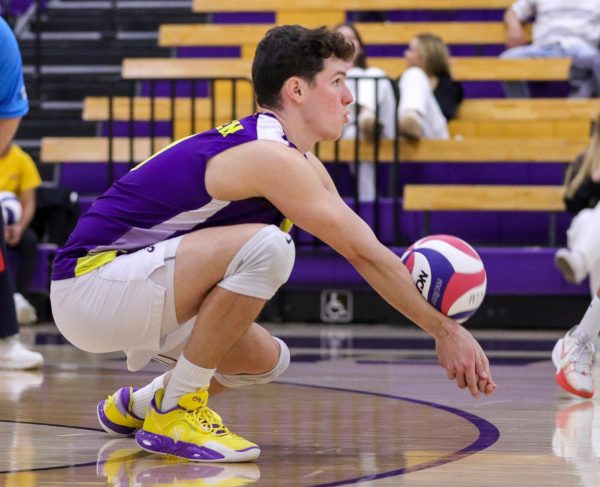The Hidden Opponent brings awareness to student-athletes’ mental health
October 11, 2022
With the aim of raising student-athlete mental health awareness, nonprofit organization The Hidden Opponent is promoting College Athletics Mental Health Week at California Lutheran University.
This week leads up to World Mental Health Day on Oct. 10, which, according to the World Health Organization, is “to raise awareness of mental health issues across the world and to mobilize efforts in support of mental health.”
Taryn Faull, Cal Lutheran alumna and ambassador for THO, said she will be working with different coaches and teams on campus to promote the organization and college athletics mental health through players wearing green ribbons in upcoming games to symbolize mental health awareness.
“There’s still a lot of stigma about mental health in general and I think a lot of people believe it doesn’t apply to the athletic population and that athletes don’t struggle with their mental health, which is simply not true,” Faull said.
College Athletics Mental Health Week aims to eliminate stigma and increase mental health resources in universities and colleges for athletes, and THO aims to make student-athletes aware that there are mental health resources for them.
“The point of The Hidden Opponent is to bring awareness to resources that are already available on campus, such as Counseling and Psychological Services, CAPS, and the CLU Campus Awareness Referral Education, CARE, Team,” Faull said.
First-year track and field athlete Jaden Ruiz said hustle culture has played a major role in why student-athletes tend to struggle with balancing the pressures of life, academics, athletics and work.
This sentiment was echoed by junior softball player Allyson Macapagal with Macapagal pointing towards sports’ competitive nature to explain why there is a stigma surrounding athletes’ mental health.
“Because sports are so focused on winning, there’s a stigma that having mental health issues or dealing with some personal troubles isn’t winning and I think that has an effect on athletes’ self-esteem,” Macapagal said.
In line with College Athletics Mental Health Week’s aim of eliminating the stigma around student-athletes’ mental health, THO emphasizes on its website the notion that student-athletes should be able to speak freely about their mental health.
“It all comes down to talking about it openly. It’s not something that anyone needs to hide from…I think people just need to realize that it’s okay to struggle with anything and you don’t always have to just push through,” Faull said.
Macapagal has recently addressed her mental health, and the pressures she now realizes as a student-athlete.
“As a young athlete, I don’t think I really understood what mental health was. But now that I am an adult in college, I realize that I was carrying a lot of pressure growing up,” Macapagal said.
Ruiz reiterates the importance for student-athletes to be aware of their mental health.
“It’s a really key part for student-athletes to have that self-awareness around our mental health because we’re constantly bringing ourselves down and we always need that sense of reassurance from everyone because that helps our self-esteem,” Ruiz said.
Faull expressed that while coaches and trainers may often overlook athletes’ mental health as they prepare them for physical battles, she said it is important to address both their mental and physical health.
“The same way that a coach might send you to the trainer if you’re injured, they should talk about wanting to get you help for a mental struggle of some sort. Mental and physical health should be treated as equal,” Faull said.
For student-athletes or anyone looking for mental health resources on campus, please visit the CAPS, and CARE websites.













